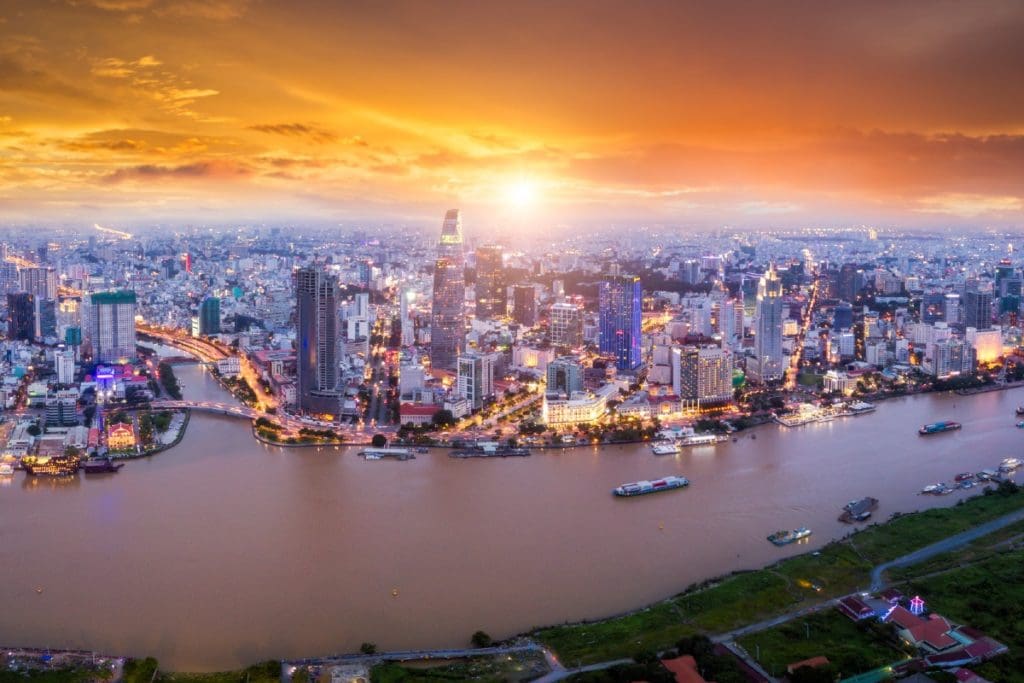Vietnam Shut Down Impacts Australian High End Bike Supply

When you think about bicycle and component manufacturing countries in Asia, chances are that your list would start with China, Taiwan and perhaps Japan.
But Vietnam has become an increasingly important production hub over recent years. This has been partly as a way for global brands to avoid the ‘anti-dumping’ measures imposed upon Chinese manufacturers by the European Union and the USA vs China trade wars that erupted during the Trump administration.
To most Australians, their first word association with Vietnam would be ‘war’. But the Vietnam War ended way back in 1975. Since then, the country has gradually become more industrialised and prosperous. But its wages for bike factory workers are still far lower than Taiwan’s and even lower than China’s, which is another reason for the bike industry expansion there.
Today, several high-end bike companies source most of their carbon bikes in Vietnam. Ibis, Rocky Mountain, Evil, Revel, Specialized, and Intense, plus others all rely on Vietnamese carbon frame production in particular.
Unfortunately, after faring better than many other counties, Vietnam has suffered a major covid wave and all factories have been shut down since 16th July 2021. On 15th September, the lockdown was finally lifted, but selected hot spots are still impacted and factories have to re-apply before they can re-open. Priority is being given to those factories whose workers can live on-site to create a ‘bubble’ without outside contact.
The easing might be more motivated by economic desperation than health expert advice. According to the World Vaccination Tracker published by the New York Times, as at 16th September 2021, Vietnam had only 6% of their population fully vaccinated and 26% with one dose. Despite declining slightly in recent days, Vietnam is still running at over 10,000 new cases a day as at 16th September, with official numbers being notoriously undertested and understated in poorer nations. Their official death rate has averaged about 300 per day since the lockdown began in July.
Vietnam’s low vaccination numbers are not uncommon in many poorer nations. The rich nations of the world have bought the lion’s share of vaccines so far. According to one report, vaccination rates are far higher in certain zones of Vietnam, with the wealthier industrial zones having higher rates than the poorer rural zones.
Our bicycle manufacturing industry is a multi-national, interconnected web. Frames and components made in Vietnam might be shipped to Taiwan or elsewhere for assembly, along with parts from other countries. If only one piece in the puzzle is missing, all of the other components literally have to sit and wait.
We have heard of one Taiwanese factory that has had to lease three additional warehouses just to store all the components / partly completed bikes that are waiting on one of more parts to be finished and ready for export.
The usually finely tuned ‘just in time’ production system that has resulted in amazing efficiencies over recent decades, is not robust enough to cope with covid chaos. Due to this interconnectedness, until vaccination rates in all major bike producing countries reach 80% or more, it’s hard to see how global production will be able to return to its previously stable, reliable status.
Elements of this article were first published in Pink Bike, Bike Europe and the New York Times.
